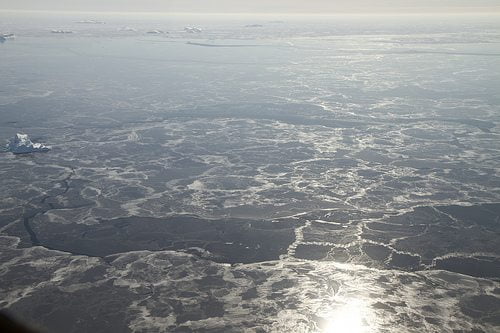

Environment
Ice loss in the Arctic linked to 16-foot waves
For the first time, scientists have observed huge waves in the Beaufort Sea in the Arctic where once there used to be only ice, a phenomenon that is feared could break more ice and worsen global warming.
A new study, the first ever assessing waves in the Arctic Ocean, has discovered that vast areas once covered in ice and now ice-free have generated 16 foot (5 metres) waves in September 2012, when ice retreated more than 1,000 miles from the shore.
The new finding has important implications for the economy and the environment. Unstable weather would make it more difficult for states to open new shipping and oil routes through the melting Arctic, while strong waves could even worsen climate change, breaking more summer flowing ice and therefore speed up global warming.
Lead author Jim Thomson, an oceanographer with the University of Washington’s Applied Physics Laboratory, explained, “As the Arctic is melting, it’s a pretty simple prediction that the additional open water should make waves.
“Almost all of the casualties and losses at sea are because of stormy conditions, and breaking waves are often the culprit.
“The melting has been going on for decades. What we’re talking about with the waves is potentially a new process, a mechanical process, in which the waves can push and pull and crash to break up the ice.”
Scientists will keep investigating the effects of big waves and what they will mean for further ice melting in other arctic locations and plan to put sensors in the ocean to better understand the process of sea ice retreat.
“There are several competing theories for what happens when the waves approach and get in to the ice,” Thomson added.
“At this point, we don’t really know relative importance of these processes in future scenarios.”
Photo: NASA Goddard via flickr
Further reading:
Melting Arctic to pave the way for luxury cruises
Shrinking Arctic will create shipping bonanza in region
US Navy: melting Arctic requires new military strategy


 Environment12 months ago
Environment12 months agoAre Polymer Banknotes: an Eco-Friendly Trend or a Groundswell?

 Features11 months ago
Features11 months agoEco-Friendly Cryptocurrencies: Sustainable Investment Choices

 Features12 months ago
Features12 months agoEco-Friendly Crypto Traders Must Find the Right Exchange

 Energy11 months ago
Energy11 months agoThe Growing Role of Solar Panels in Ireland’s Energy Future





























